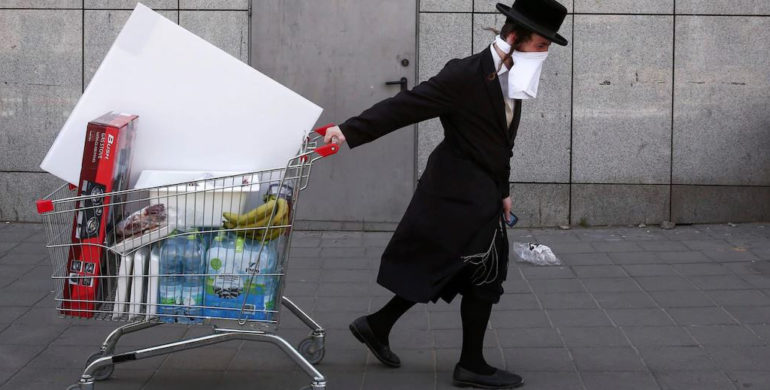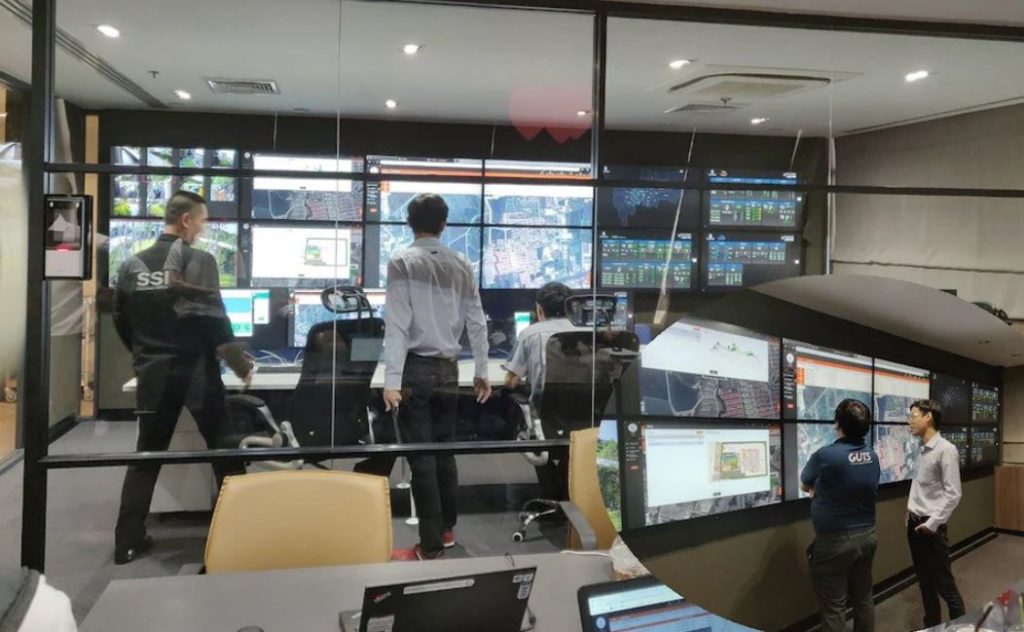Octopus system credited with eliminating coronavirus in an Israeli neighborhood after using 500 cameras to monitor residents
It sounds like a scene taken from the pages of a dystopian pulp novel: a technophobic religious community is placed under the watchful eyes of 500 cameras to protect them from a deadly disease.
But in Israel, this far-fetched premise has become reality, as the Jewish state looks to high-tech solutions to protect ultra-orthodox communities from the coronavirus.
In late March, an Israeli mass-surveillance system took control of a town’s cameras to keep tabs on citizens and alert rulebreakers to the police. This was followed by a major decrease in new infections.
The system, named Octopus, was deployed at the end of March in the coronavirus stricken neighborhood of Bnei Brak, near Tel Aviv, and is credited with flattening the curve of infections within a matter of weeks.
At that time, the ultra-orthodox Jewish neighborhood was sealed off from the rest of the country after it was estimated that a tenth of the 200,000 residents had been infected.
“To block the spread of the disease we had to take control of the city…the first thing is to get eyes so the first order was to connect every camera in the city and know where they were located,” Tal Bar-Or, the head of Octopus, told the Telegraph.”
“We started with hundreds of infections a day and within one month it became tens of infections,” he said, adding that eventually, the rate of new cases fell to zero.
Israel appears to have fared better in its efforts to eliminate coronavirus than other Middle Eastern countries, with a death toll lower than 300 at the time of writing.
According to the latest figures, the vast majority of the 18,800 Israelis who were infected with coronavirus have now recovered.
While technology has played a key role, strong cultural factors may also have contributed to the low number of infections and deaths.
As military service is compulsory in Israel, and the country is frequently on alert for terrorist attacks, citizens are familiar with lockdowns and following orders.
But in the case of Bnei Brak, there were some additional challenges: the ultra-orthodox Jewish community shuns modern technology and is usually reluctant to follow Israeli government rules.
The close-knit community has been more severely affected by coronavirus than any other group in Israel, partly due to an initial resistance by Rabbis to cancel group prayer sessions and close religious schools.
The Octopus team stresses that the measures were only adopted after gaining consent from the Bnei Brak community so that residents did not feel like they were living in an Orwellian dystopia.
“Everything was communicated with the community as we had to gain their trust,” Mr. Bar Or said.
Octopus says it took control of 500 cameras in Bnei Brak within 24 hours and set up a live feed in a control room.
As soon as one camera picked up evidence of rule-breaking, such as illegal public gatherings or failure to enforce social distancing, the location would be sent to police for further investigation.
In addition to video surveillance, Octopus provided residents with an app that gave them minute-to-updates on the severity of the pandemic, as well as practical advice such as how to obtain essential food and supplies.
Mr. Bar Or said that drones and observation balloons were deployed in the neighborhood’s blind spots where no cameras were available and connected to the same control room, creating a live map of the area.
He added that the system can be modified so that cameras can identify citizens who are not wearing face masks outdoors, which is compulsory in Israel.
The James Bond-esque security regime reflects how countries will need to carefully balance public health with concerns over civil liberties as they prepare for the second wave of coronavirus which is expected to strike towards the end of the year.
To make citizens feel that they were in control of the system, and not the other way around, a “manager” in each residence was given live updates about the situation and invited to share Octopus data with their neighbors so they could watch the infection rate recede in real-time.
“The municipality which was not that technical accepted that it needed the technology in order to survive. We are not overlooking them like Big Brother but communicating with them and explaining to them,” said Mr. Bar Or.
Octopus says it hopes to introduce the system to the UK before the second wave of coronavirus arrives, though no formal talks with the British government or local authorities have begun yet.





Mark Liss
Posted On: 17th Jun 2020 -Excellent work, well done.
You should come to Toronto.
There will definitely be a next wave.
Comments are closed.